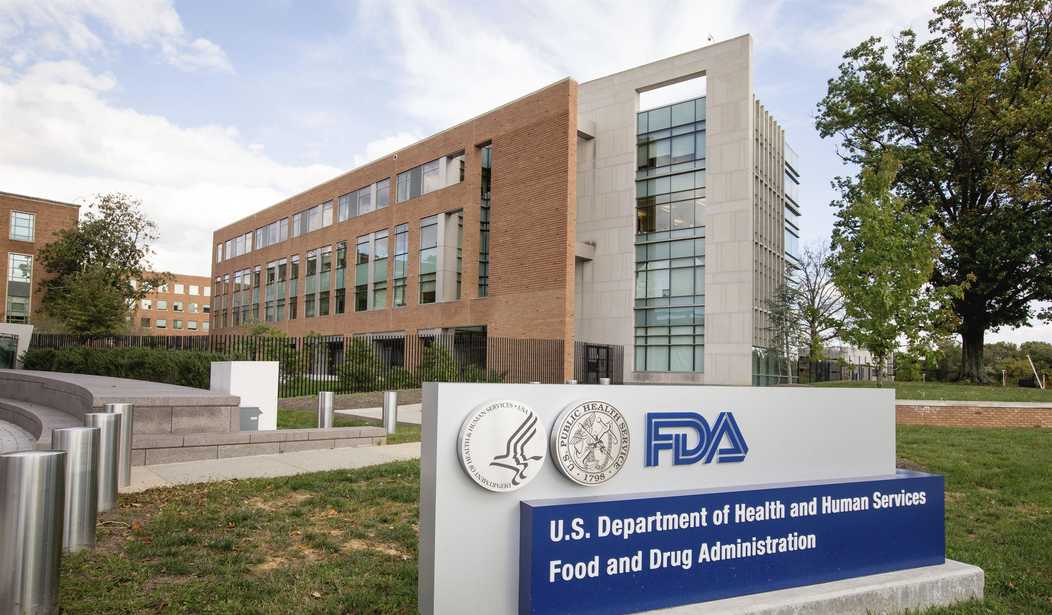The press has obsessively focused on supposed government shortfalls regarding COVID-19 testing. However, virtually no attention has been given to the Food and Drug Administration’s (FDA’s) vigorous and unprecedented efforts to ease regulatory requirements during the pandemic.
One such effort involves “immediately in effect” enforcement policies for medical devices that are particularly needed during this health crisis. These detailed policies were issued, beginning in March, pursuant to emergency authority under FDA law.
At the heart of each policy is the statement that FDA “does not intend to object” where specified devices are marketed in ways that previously were not allowed, assuming the relevant policy is followed.
These policies apply to ventilators, clinical electronic thermometers, medical-use face masks, respirators, gowns, gloves and other medical devices. There are also policies for medical devices used for fetal and maternal monitoring, imaging, cardiopulmonary bypass and sterilization. Other policies apply to infusion pumps, air purifiers and digital health devices for treating psychiatric disorders.
The policies are intended to remain in effect only for the duration of the COVID-19 crisis. However, some deregulatory aspects should be considered for the future and made permanent.
The goals of each medical device enforcement policy differ. But they often include helping to ensure availability of needed devices and components, increasing remote patient monitoring to reduce exposure to COVID-19, and expanding ways that devices can be marketed for patient care.
Each policy balances risk versus benefit. Specific regulatory requirements are waived where their absence would not pose “undue risk” in light of the public health emergency. The policies provide numerous examples of circumstances that don’t pose “undue risk” versus those that do.
Recommended
They also detail critical, ongoing regulatory requirements (such as product testing) and include exhaustive recommendations for product labeling (including instructions for using the product), conformance to consensus standards and application of existing FDA guidance.
While each policy is different, many allow manufacturers to make certain software and hardware modifications to currently marketed devices without prior FDA authorization. Others allow expanded product indications and functionality without prior FDA authorization (so-called “off label promotion”). Other types of regulatory requirements are also often waived.
Discrete examples from a few policies are illustrative.
MRIs, x-ray systems, ultrasound and image analysis software are used in diagnosing and monitoring COVID-19 patients. FDA’s current enforcement policy allows manufacturers to make “limited” modifications to the technical specifications, hardware, software, materials, functionality and indications of FDA-cleared or approved imaging devices without prior FDA authorization. One given example is that design modifications can be made to improve the ability to clean, disinfect and/or sterilize these devices.
COVID-19 patients often need continuous infusion of medicines, nutrition and other fluids. The current infusion pump enforcement policy is intended to facilitate device availability, foster technologies that maintain safer physical distance, and address manufacturing limitations and supply shortages. Among many other things, the enforcement policy allows companies to market FDA-cleared infusion pumps for new or different patient populations, such as pediatric patients, that had not been explicitly referenced in the cleared labeling without prior FDA authorization.
Similarly, FDA’s enforcement policy for non-invasive fetal and maternal monitoring devices allows “limited” modifications to FDA-cleared devices without submitting an FDA marketing application. Such modifications can increase access to prenatal data and facilitate patient management without in-clinic or in-hospital visits. Modifications include changes to a device’s instructions for use, so that a device can be used in a home setting and device modifications can make a device more mobile for home use or to increase remote monitoring capability.
The oft-repeated phrase “don’t waste a good crisis” could certainly apply here. The crisis-inspired device enforcement policies are thoughtful and measured. Some aspects of these policies, particularly those relating to “off label promotion” and certain device modifications, have been topics of FDA-industry discussions for years.
They merit serious consideration for the long term, not just for the duration of this COVID crisis. This would be consistent with President Trump’s May 19 Executive Order, “Regulatory Relief to Support Economic Recovery.”
Aimed at combating COVID-19’s economic consequences, the Executive Order instructs federal agencies to rescind, modify or waive regulations or provide regulatory exemptions from regulations and other requirements that may inhibit economic recovery, while ensuring that the actions are consistent with applicable laws and protect public health and safety.
Ongoing regulatory flexibility beyond this crisis will benefit the economy, free FDA to focus its limited resources on clearing and approving innovative and essential medical devices needed in the future, and allow the agency to continue protecting the public health during more ordinary times, as well as during crises that will almost certainly arise in the future.
Our best interests are not well served if the FDA’s new policies are allowed to simply expire when this crisis ebbs – and then must be resurrected during a future health emergency, when the Executive Branch may not be as amenable to regulatory flexibility.
Ms. Richman served as in-house and outside regulatory counsel to FDA-regulated companies for over 35 years. Her most recent position was VP, Chief Regulatory Counsel to Siemens Healthineers. She currently writes and speaks about FDA regulatory topics.

























Join the conversation as a VIP Member